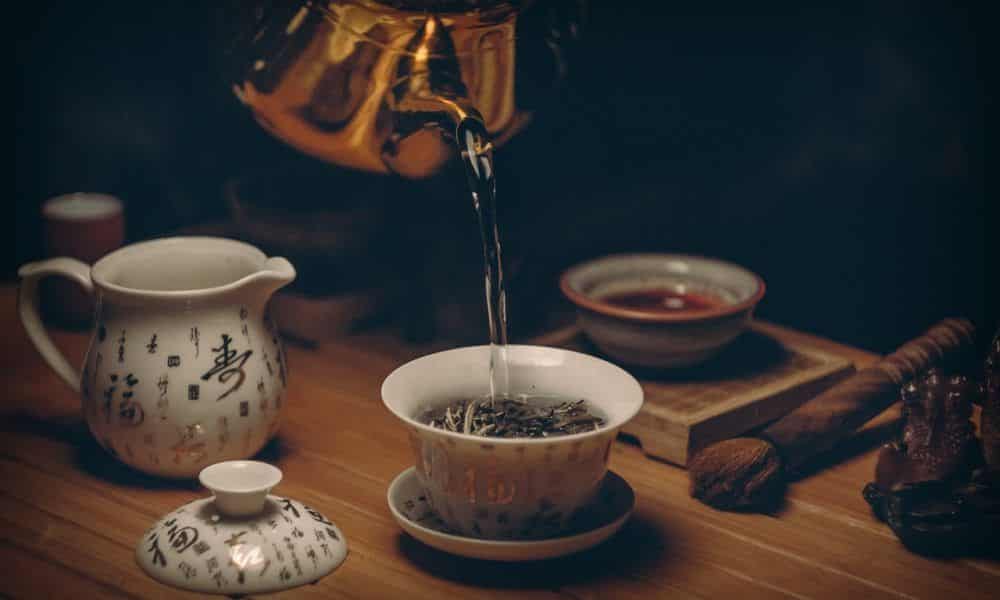Everyday worries can be responsible for making it difficult to sleep. So, discover the best teas for sleeping and relaxing.
Sleeping can end up being very difficult for some people. Worries, stress, anxiety… there are many reasons that lead to insomnia, but there are also many recipes for sleep teas that can help solve this problem.
Some medicinal herbs have calming properties that help during this time of rest, which is sleep time. For this reason, they are highly recommended as a natural remedy for those who have trouble sleeping. Furthermore, the different herbs have several other beneficial properties for our body that strengthen the immune system.
It is best for the tea to be consumed 30 to 60 minutes before going to sleep, as this will give it time to take effect on the nervous system and your body and mind will be able to relax. Furthermore, if you prefer sleeping tea recipes with more than one herb, use 250ml of water for each plant added. Now, discover some of the best herbs to help you fall asleep.
The best teas for sleep
Chamomile tea
This is one of the most famous recipes for those who can’t sleep. This is because chamomile has natural calming effects that reduce cortisol, the hormone responsible for stress and anxiety. Furthermore, it is believed that the plant can act on benzodiazepine receptors, which reduce the activity of the nervous system, that is, it has a sedative effect.
You can prepare this tea by letting the chamomile flowers sit in boiling water for 10 to 15 minutes. Then just strain it and drink it when it’s warm. However, its consumption should be avoided by pregnant people and children, especially without medical advice.
Passionflower
Another of the best-known sleep teas is passionflower tea. Passionflower is the flower of the passion fruit, a fruit already known for having a relaxing effect. Its substances act gently as a sedative, which is why its consumption helps combat insomnia, enabling a night’s rest.
To make passionflower tea, you can use 1 tablespoon of dried passion fruit flowers or 2 tablespoons of fresh flowers. Then, let it rest for 10 to 15 minutes in boiling water, then just strain and drink. However, this tea is also not recommended for pregnant women or children under 12 years of age.
Lavender tea
Lavender is naturally calming, the aroma of its essential oil is widely used for those who want to relax. Therefore, lavender tea is very good for helping you sleep. To prepare lavender tea, simply place 10g of this plant’s leaf in 500ml of water and boil. Before it comes to a boil, turn off the heat and, after that, just strain it and it will be ready for consumption.
Lemon balm tea
Among the best-known sleep teas is lemon balm tea. The properties of this herb are also great for relieving headaches, stomach pains and poor digestion. Furthermore, it is a great natural tranquilizer. To prepare this tea, simply add 1 tablespoon of dry lemon balm leaves to 250ml of boiling water. Let it rest for 10 to 15 minutes and then strain, this way the natural tranquilizer will be ready.
Mint tea
Mint tea is well known, but did you know that it is also a great option for sleeping tea? This is because mint causes a relaxing effect on the body, combating insomnia.
To prepare tea from this herb, simply add 15 to 20 mint leaves (dried or fresh) to 500ml of boiling water. Let it rest for a few minutes and then just strain and consume.
Valerian tea
Valerian tea is a great tea option to rest after a tiring day, combating insomnia and increasing sleep time at night. This is because the root of this plant can release amino acids that are responsible for inhibiting the nervous system, helping to relax the body.
Preparing valerian tea is very simple. Leave 1 tablespoon of dry valerian root for 15 minutes in 250ml of boiling water. Then strain and drink the tea 30 minutes to two hours before going to sleep. However, it is recommended that pregnant women and people with liver problems avoid this tea.
Green tea for sleep
Green tea is known for giving energy and helping with weight loss, but its non-decaffeinated version contains a compound called L-theanine. This substance helps reduce stress and the feeling of relaxation, which leads to a good night’s sleep.
Add two tablespoons of green tea herb to 1 liter of boiling water. Then, cover the container and wait 3 to 5 minutes for the infusion to take place. After that the tea will be ready for consumption.
Lemongrass Tea
Lemongrass tea is very suitable for relieving stomach pain, but this is also on the list of great teas for sleeping. The herb has calming properties that will help you relax and get a good night’s sleep.
In the recipe to make this tea you must use 4 to 6 chopped leaves for each cup of water. Simply infuse the herb in boiling water for 10 minutes, then strain and consume.
Fennel tea with ginger
Fennel and ginger are well known for treating digestive problems. The herb and root can act against gastritis, abdominal swelling and poor digestion, problems that can greatly disrupt sleep. Therefore, this mixture can be a good tea option to help you relax.
To make this tea, add 1 tablespoon of chopped ginger to 500ml of water and bring to a boil. After 10 minutes, turn off the heat and add 1 tablespoon of fennel and let it rest for 5 minutes. Finally, strain the mixture and the tea will be ready for consumption.
lettuce tea
This vegetable is not very common in tea production, but lettuce tea has a relaxing and sedative effect. This drink is highly recommended to help improve the night’s sleep of children under 6 months and pregnant people.
To prepare, boil the water with some lettuce leaves for 3 minutes, then just strain it and consume it overnight to have a peaceful sleep.
St. John’s wort tea
St. John’s wort, or hypericum, is widely used to relieve anxiety and combat insomnia. This is because it contains hypericin and hyperforin, substances that act on the central nervous system, calming the body and mind.
Add 1 tablespoon of dried St. John’s wort to 500ml of boiling water and wait for 5 minutes. Then, just strain and the tea will be ready.
Sources: Take Care CPAPS This is Your Health

Sign up for our newsletter and stay up to date with exclusive news
that can transform your routine!
Warning: Undefined array key "title" in /home/storelat/public_html/wp-content/plugins/link-whisper-premium/templates/frontend/related-posts.php on line 12
Warning: Undefined array key "title_tag" in /home/storelat/public_html/wp-content/plugins/link-whisper-premium/templates/frontend/related-posts.php on line 13




